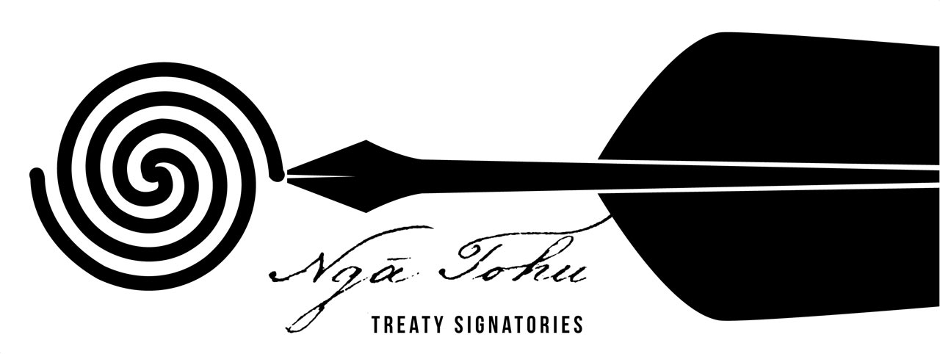Signing
| Signature | Sheet | Signed as | Probable name | Tribe | Hapū | Signing Occasion |
|---|---|---|---|---|---|---|
| 38 | Sheet 3 — The Waikato-Manukau Sheet | Te Awarahi | Te Kātipa Te Awarahi | Waikato | Ngāti Te Ata, Ngāti Pou | Manukau Harbour 26 April 1840 |
Te Kātipa Te Awarahi signed the Waikato-Manukau sheet of the Treaty of Waitangi on 26 April 1840 at Manukau Harbour. This is likely to be his second signing of this sheet. He signed at Waikato Heads under the name ‘Te Kātipa’, listing a different hapū. He may have done this to assert his mana over different parts of the rohe this Treaty sheet covers.
He signed a number of land sale agreements with James Hamlin of the Anglican Church Missionary Society. In 1837 the Ōmaru, Moeatoa, Te Tumu and Mangawharawhara blocks were sold. Then, in 1838, the Matakawau and Ōrua blocks were sold.
In the 1850s Te Awarahi signed more agreements to sell land in this area. In 1854 the government land agent Donald McLean paid £50 to 20 rangatira for the first part of the sale of the Rangitoea block in Rangiriri, lower Waikato. Te Awarahi alone sold the Hikurangi block in Whangārei, for which he received £60 from McLean. Lastly, he was involved in the sale of the Manukau block, which was bought for £1,000 by McLean in 1857. Te Awarahi acquired 500 acres (202 ha) at Manukau as part of this agreement. He later received a final payment of £200 for this sale.
Te Awarahi attended the election of Pōtatau Te Wherowhero as head of the Kīngitanga (Māori King movement) in 1858. He asked, ‘O Potatau, you will be a father to us, will you not?’ [1] When Pōtatau replied ‘Yes’, there was much cheering and a salute was fired. At a Kīngitanga meeting later in 1858, Te Awarahi expressed regret that so much land had been sold. Te Awarahi was also at the conference of Māori leaders at Kohimarama in 1860. On 20 July he said that he had not originally supported naming Pōtatau as ‘king’, but thought of him more as a father. He also said that ‘the Governor had been very good’. [2]
Te Awarahi died at the beginning of January 1863. His tangi (funeral) was held at Waiuku.
[1] Quoted in J. E. Gorst, The Maori King, Paul’s Book Arcade, Hamilton, 1959, p. 267 (originally published 1864)
[2] Quoted in Te Karere Māori – the Maori Messenger, 31 July 1860, p. 54


Community contributions